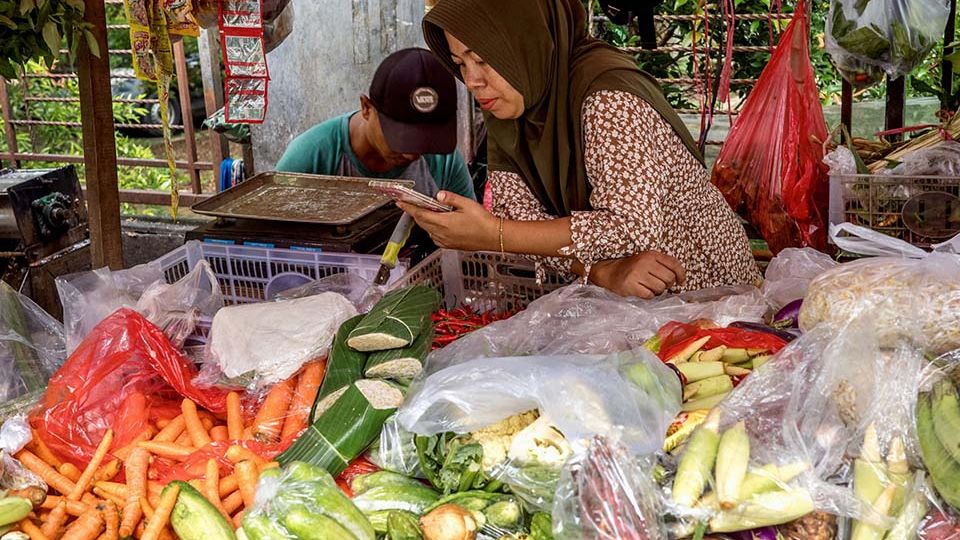April 9, 2025
JAKARTA – Indonesia’s consumer price index (CPI) in March had risen to its highest reading since December last year after the government ended the electricity discount that had subdued prices for the past two months along with a seasonal push from the Idul Fitri holiday.
The country’s headline inflation hovered at 1.03 percent year-on-year (yoy) in March, Statistics Indonesia (BPS) production undersecretary M. Habibullah said in a press conference on Tuesday, while also noting that the monthly inflation reading in March had increased by 1.65 percent.
The figure indicates a rebound in the price index after a decline of 0.09 percent in February and an increase of just 0.76 percent in January, with the former marking the first annual deflation in 25 years and the latter marking the lowest inflation rate since January 2000.
“The CPI has increased from 106.13 in March 2024 to 107.22 in March 2025,” Habibullah said.
The rate of CPI increase, however, was still below this year’s targets of 1.5 to 3.5 percent set by Bank Indonesia (BI).
The rise in monthly inflation was attributed primarily to prices under categories of housing, water, electricity and household fuel, which contributed 1.18 percentage points to the monthly headline figure with normalization of electricity prices as the key factor.
Read also: Inflation hits decades low amid electricity discount, waning spending power
Meanwhile, annual inflation was largely driven by the food, beverages and tobacco category that contributed 0.61 percentage points for staple commodities including chili and onions.
Private lender Bank Permata chief economist Josua Pardede in an analysis on Tuesday attributed the rise in the CPI figure in March to the expiration of the electricity tariff discounts and seasonal factors related to Ramadan and Idul Fitri.
In December of last year, the government announced a 50 percent electricity discount for households using 1,300 volt-ampere (VA) power or below for January and February.
“With the expiration of the electricity discounts, CPI inflation is expected to remain within Bank Indonesia’s target range of 1.5 to 3.5 percent by the end of 2025,” Josua explained.
He further noted that the annual core inflation, which strips out government-controlled prices and volatile food prices, remained steady at 2.48 percent yoy, which was largely attributed to rising gold prices.
“Excluding the impact of gold, core inflation appeared to soften, indicating a decline in purchasing power, even amid the [holiday] season,” he said.
Josua also pointed out that the rising food prices that pushed up March inflation can be attributed to a hike in demand during the Ramadan holiday season.
Meanwhile, prices in the transportation category experienced a decline of 0.08 percent month-to-month (mtm) due to discounted airfares and toll fees, in contrast to the typical Idul Fitri pattern that is typically associated with higher inflation in the category, driven by a rise in mobility due to homecoming events.
Furthermore, he highlighted that the depreciation of the rupiah against the United States dollar could intensify imported inflationary pressures, further elevating cost-push inflation and raising inflationary passthrough risks.
Read also: Sapping rupiah raises inflation risk as imports cost more
The rupiah’s exchange rate against the US dollar has been on a downward trend since the turn of the year.
Businesses and analysts have warned that inflationary pressures will continue amid the weakening rupiah as it raises prices of imported goods, which make up a significant portion of inputs for domestic manufacturers.
Moreover, some producers may eventually consider passing on the higher costs to consumers, triggering import inflation.


